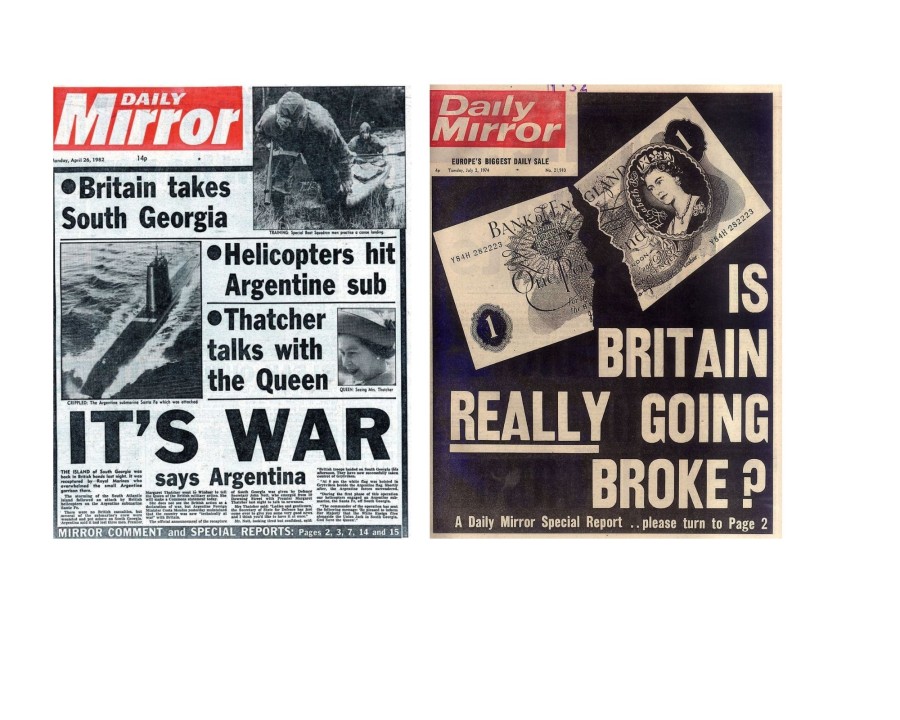
The lessons we could all learn from tabloid newspapers
When I was a boy, the Daily Mirror arrived through our letterbox six mornings a week.
This was in the very late 1970s and early 1980s, when the Mirror was arguably at its peak. Its circulation overtook The Sun in 1978 and it broke some very serious and important stories alongside the lighter content.
I read the paper at the breakfast table every morning and I think something seeped in. When I trained to be a reporter, I realised I had an instinct for how to put together a news story.
I had a lot to learn about journalism – especially about the complicated business of dealing with people. But writing economically wasn’t too hard for me to learn. When trainees who were reared on the Guardian had problems finding a prose style, one of our trainers advised them: “Read the Mirror.”
Many people look down on the tabloid newspapers – and not without reason.
If you don’t like some of their practices, their attitudes or their obsession with celebrity, that’s fine. But there’s a reason these publications are read in the millions – and whether you’re a journalist, or someone seeking to share their news with the media, there’s something to be learned here.
Making a good start
I wrote a little while ago about how journalists obsess over the “intro” – the one-sentence opening paragraph that sums up the story which follows.
The tabloids have always excelled at this. If you look at back issues from their print heyday, you’ll see particularly elegant, simple writing that has an impact. A lot of the credit has to go to the sub-editors who would knock any remaining flabbiness out of the reporters’ copy before it went to print.
They still do this well. Here’s an intro from near the top of the Mirror’s website as I write this:
Heavyweight champ Anthony Joshua has become Britain’s first official £100m boxer.
Simple, direct, and it earns extra marks for being a story written from a set of accounts.
Here’s another:
Families of care home residents are demanding visiting rights after a cruel year of separation.
And one from The Sun:
Captain Sir Tom Moore's daughter has blasted "vile" trolls who hounded her family during his £33million NHS fundraising mission.
Each of these summarises a story powerfully in between 11 and 19 effective words.
But the lessons we can learn from the tabloids don’t stop there.
More tips from the tabloids
Aside from their well-crafted intros, there’s a lot more we can learn from the tabloids:
- No redundant words. These have traditionally been papers for working people, who want the news presented directly in a format they can digest in a short break. There is no time for waffle, or for redundant language. They get to the point, as if the writer was being charged for each word.
- Colourful quotes. I discussed here the value of having vivid quotes in a story. You don’t have to read too far into a tabloid story to come across something memorable between quotation marks.
- One thought, one sentence. The popular press doesn’t get bogged down in complex structure. One sentence sets out some facts or an opinion. If it needs contradicting or qualifying, that normally comes in another sentence.
- No jargon. Where possible, unwieldy language is replaced by the simple kind. If a clunky term is needed – quantitative easing, say, or lateral flow – it’s explained.
- Simple labels. If these publications need to explain who somebody is, or what something is, they do it simply. "Heavyweight champ Anthony Joshua" does the job nicely.
- An understanding of the reader. This is possibly the most important thing about them, and the reason they were such a vital part of millions of people's lives in their prime. They know what their readers care about – jobs, prices, family, home … and today, TV and whatever's going viral online. Consequently, they know how to make every story about people.
It’s easy to scoff at tabloids – their excesses, their cliches, their sometimes simplistic approach to complex subjects. But the popular press can give us all a few pointers about communicating.
After all, don't we all want to reach the widest readership we can?
Business Development Hixsons
3yJust checked out #FitToPrint So many helpful pieces Darren Slade Thanks for sharing your wisdom.
Managed File Transfer Expert | Founder of Pro2col Limited
3yVery true Darren Slade. The top of their trade as master wordsmiths. Many of them have and continue to be our customers. Shame they’re largely controlled by people of significance with morally questionable agendas.